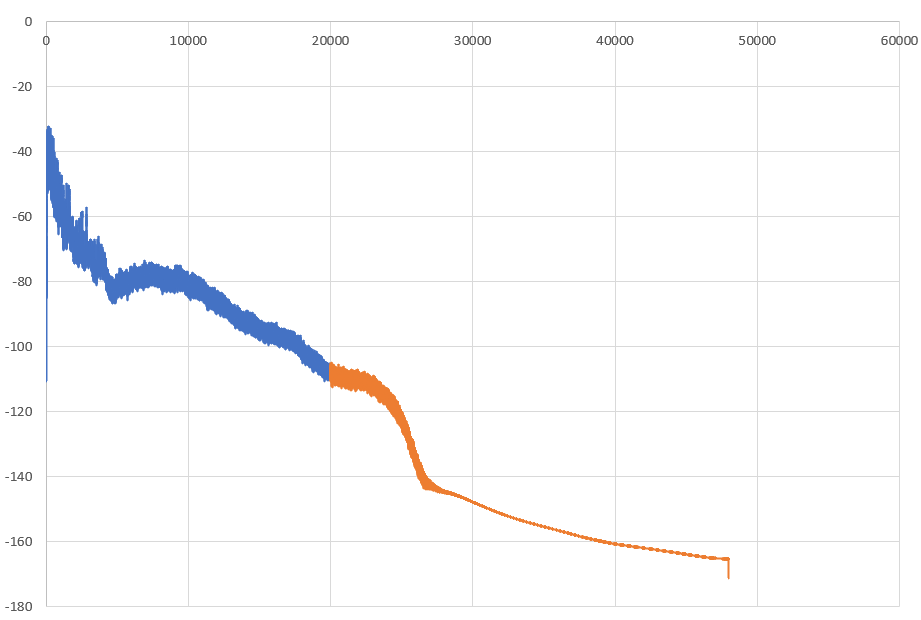it’s ‘jansen’ in dutch. Oder Meyer in German ;![]()
?
Elaborate?
Central Bank Digital Currency
I guess
It does, sir.
And like real coins, hires is a inflation from the real thing. The early stage of the CD still had something of a tangible good.
How do older recordings become available in Hi-Res?
I assume that when CDs were released they took the original analog tracks and remastered them into 44/16. Are hi-res tracks remastered from the original analog versions? Or are they taking the the 44/16 tracks and just upsampling them?
I could see that the former would make hi-res tracks truly lossless and on par with analog. While the later would be a waste of money since our dacs take the 44/16 tracks and upsample them for us.
What is the case?
Mostly yes, although ‘remaster’ could mean all sorts of things.
It’s an (arguably) interesting rabbit hole trying to find out what was done for any specific recording, but ultimately irrelevant - you either like it or you don’t.
Anything can be the case. Some old analog tapes are re-digitized in hires with modern gear by experienced remastering engineers and sometimes under the supervision of the original artists. Others are upsampled from CD masters to make a quick buck
Some have even been “remastered” from worn lps. This happens with the out-of-copyright labels because they do not have access to the original tape or master disc.
That, too.
In my examples above, there are some in-between as well - originally already digitized to hires for postproduction but then downsampled for a CD release because there was nothing else, and now the original hires can be released. Yet others are diligently remastered from original tapes with artist oversight but only get a 16/44.1 reissue (which is fine, really).
Anything can be the case, there is no Politbureau that globally oversees hires releases ![]()
Cough Cough……HDtracks………just say no
Yes-Yessongs sounds just as horrible as it already did on the original vinyl. That’s just one example.
Is Qobuz the safer bet?
Qobuz just publishes what the labels send them. They ain’t the Politbureau either. Where the real info is is with the labels or artists who own the rights and publish the reissues. Sometimes this is easier to get, sometimes it’s impossible. But on Qobuz streaming you can try without cost if there is a difference to you.
Short answer: no. There is no long answer
However, places like Analogue Productions, Pristine Classical, MoFi,(please let’s not get into the controversy), High Def Tape Transfer etc are ones that take care in remastering from original tapes. You have to really check the provenance by asking them if they’re not clear.
Rest—all the streaming services, HDtracks, Pro Studio Masters, etc etc—often are selling snake oil
Sorry for the delay. I got the track from Bandcamp. I would have preferred a different genre, as jazz tends to kill my brain cells, but £1 is not too much for science. Here’s the graph:
It does seem a genuine 96kHz, there’s nothing weird around 20kHz. It’s also very clean, with no idle tones or other visible artifacts. A spectrogram will show ultrasonics, but since levels are already under -100dB at that point, I don’t think you can hear anything, even in isolation.
Thank you for sacrificing your brain for our benefit!
I’ll happily send you this track for free if you want to analyse another (and have enough brain cells left).
It has drums - so hopefully has more 20k+ content.
It was also professionally mastered.
Thanks Greg, much appreciated. I think I still have a few tens of billions left - or at least that was the number before I listened to this one on Bandcamp. It’s jazz alright, so I’d be happy to delete it after if you wish.
Obviously, the file is 96kHz, but am I seeing it wrong that the master was actually done at 48kHz, as level finally plummets into the abyss of the dithering noise floor right around 24kHz?
